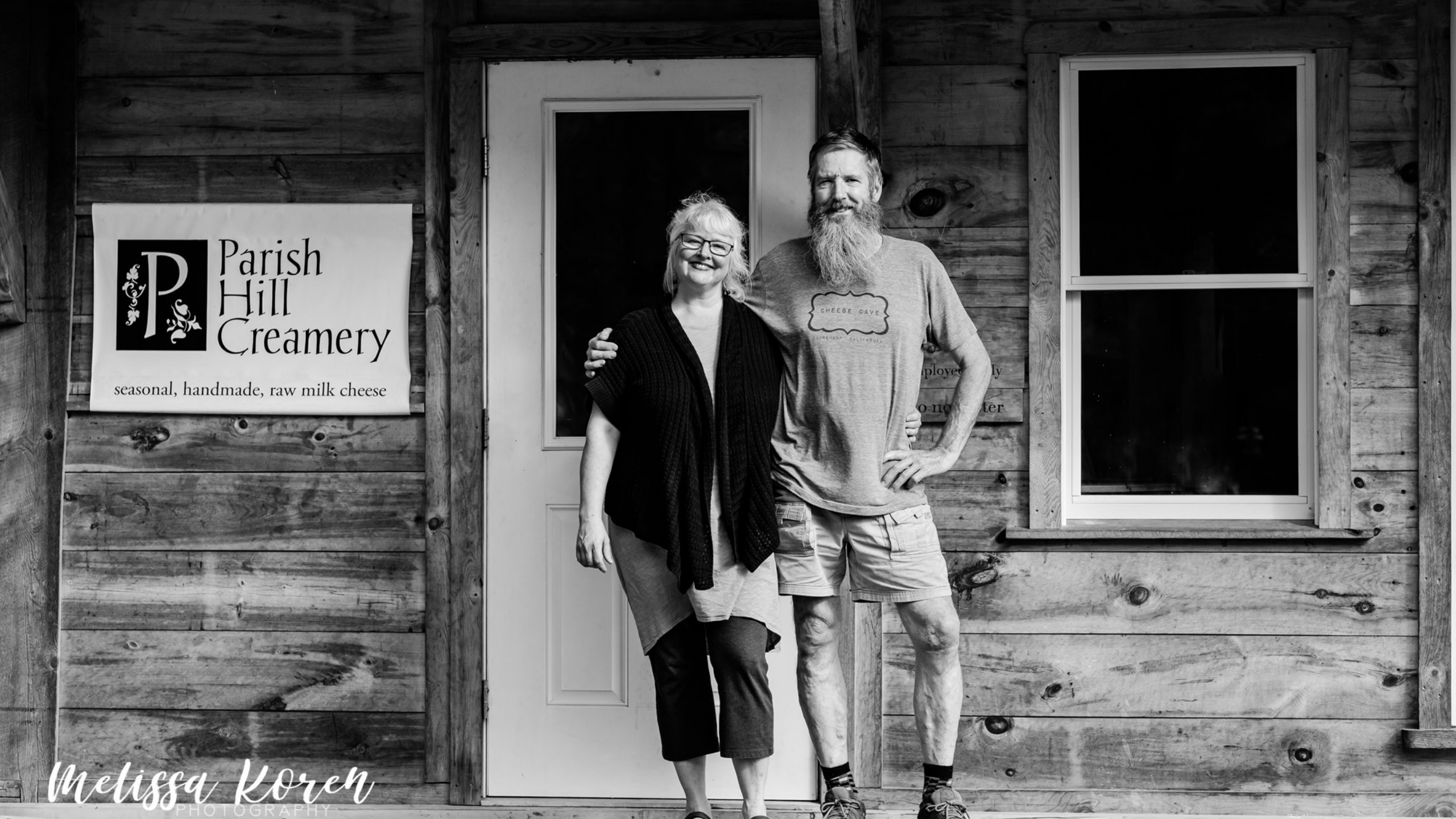
February 9, 2021 | Montpelier, VT - Early in 2020, before COVID-19 had become a reality for the country, the owners of Parish Hill Creamery in Westminster, Vermont were focused on their small-scale production of artisan, raw milk cheese for high-end markets. It was going well: they were selling everything they made and had been awarded the Slow Food Resistance Award for their work in teaching other cheesemakers traditional methods. They had also placed at the World Cheese Awards and had placed at the American Cheese Society competition for the fifth consecutive year.
After eight years of running the day-to-day production with a lens to quality, tradition, and sustainability, Rachel Schaal and Peter Dixon were starting to consider hiring cheesemakers for their business and transitioning their own roles to focus largely on teaching, looking forward to continuing to impart their cheesemaking knowledge to the greater community.
But when the pandemic wreaked havoc on distribution routes and wholesale markets, Rachel and Peter were stopped in their tracks. Without many of their foundational high-end markets, they were faced with the much more immediate question of whether they needed to stop making cheese altogether. Ultimately, they decided to press on, shifting their distribution outlets to more localized markets. But to make those shifts, they needed to adapt their business as well.
Enter the Working Lands Enterprise Board’s (WLEB) COVID-19 Response Business Development Grant program, which offered funds for Vermont agriculture businesses to pivot and adapt to COVID-19 impacts on their markets. Parish Hill Creamery was selected as one of two dairy business grant recipients. The WLEB grant covered equipment needs and the Vermont-based, USDA-funded Northeast Dairy Business Innovation Center (NE-DBIC) stepped in to support Parish Hill’s marketing-focused work.
Since the height of the pandemic impacts on the food supply chain in the spring, Parish Hill has been busy making the most of their $21,175 grant, embarking on three investments: the purchase of equipment that they needed to streamline and expand their capacity for cutting and wrapping cheese, including a small walk-in cooler and a vacuum-sealer; updates to their marketing plan and marketing materials, including a website upgrade, professional photography and videography, and brand development; and lastly, a feasibility study and site plan for aging space to accommodate expansion.
In speaking with Rachel several months into their grant, she expressed that the WLEB and NE-DBIC grant funds had allowed them to stay in business. By utilizing new equipment and upgrades funded through Working Lands they were able to meet local market demand that they would have otherwise been unable to meet. While the equipment enabled them to react quickly to shifts in the market, the NE-DBIC investment in their marketing strategy and expansion feasibility study has longer term impacts, developing a fresh brand appeal and increasing capacity. Both will help them access new markets as the potential for demand grows again.
And in the meantime, with the financial pressure somewhat relieved, they were able to infuse time and energy into their cheesemaking and, as Rachel said, they were able to “continue to turn milk into something sublime, making some of the finest cheese since starting [their] business.”
While the outlook remains a bit hazy, they feel more prepared to weather unexpected storms. Rachel said, “These funds helped us stay in business and allowed us to look really hard at what’s important to us. We didn’t feel like we had to give up and feel very valued by the state and our community.”
For more information about this project, contact:
Rachel Schaal and Peter Dixon
Parish Hill Creamery

